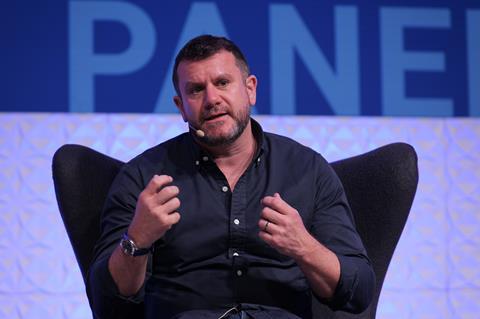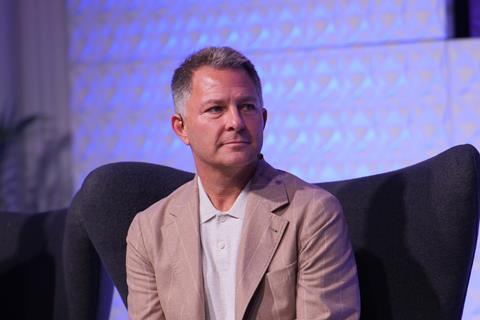Barry Poznick points to Prime Video’s gameshow Wish List as example of reimagining what IP can be used for

Producers should consider all potential “on ramps” for content as they look to create and monetise IP across platforms, according to senior execs at Amazon MGM Studios and Wheelhouse.
Barry Poznick, president of unscripted at Amazon MGM Studios, pointed to Wish List and Ring Nation as examples of series that shifted perceptions of what could be developed in partnership with the retailer’s media business.

Prime Video’s gameshow Wish List debuted last year and offered Amazon customers the chance to win $25,000 of products from the e-commerce giant’s ’Wish List’ service - which allows customers to create lists of and track items they want to buy - while clip show Ring Nation was hosted by Wanda Sykes and featured cleared video recordings from Amazon-owned doorbell company Ring.
“When Amazon bought MGM they obviously acquired 100 years of IP in the library but there was more [potential],” Poznick said.
“Amy Powell, who was at Paramount and is now at Amazon, called me up and said she’d been looking at her Wish List on Amazon, which people use for their birthdays, or weddings or anniversaries. She asked if that was IP.
“We talked and agreed it could be an awesome idea for a show so I said let’s make a gameshow based off people’s wish lists where you compete in games to win whatever’s on your wish list.”
The show debuted last year and Poznick said it had performed across all viewing metrics. “It also helped to sell some merchandise, which wasn’t even really point of it - the point was to encourage people to use their wish list, but it had a domino effect.”
He said Ring Nation, which using people’s Ring doorbell footage to create a clip, is a way of taking pre-existing IP to develop new ideas that could work on streamers and social platforms.

“You need to bring different disciplines in now, it’s no longer about creating a show just for TV,” added Ed Simpson, chief strategy officer at Wheelhouse, which is behind shows including Prime Video’s The Money Game and Netflix’s WAG’s to Riches and The Menendez Brothers.
“You need to monetise shows everywhere, it’s about using those different disciplines as on ramps to provide access to different areas of your business.”
Simpson said the advent of YouTube on home TV screens meant viewing and consumption of digital content had now “hit the mainstream”, with “better, more immersive content delivered on a bigger screen”.
He added: “That business model is very different to the one we are all used too, where we’d find someone to pay for a show and then 18 months later we’d put it on air and see if it was any good.
“With YouTube, you put the minimum viable product on screen to get feedback and then you iterate, and you keep on iterating at the lowest possible cost to create the best product for the audience.
“It is a business model that is low cost and almost self financing but if you keep persevering it can become a highly profitable audience-owning engine.”







No comments yet